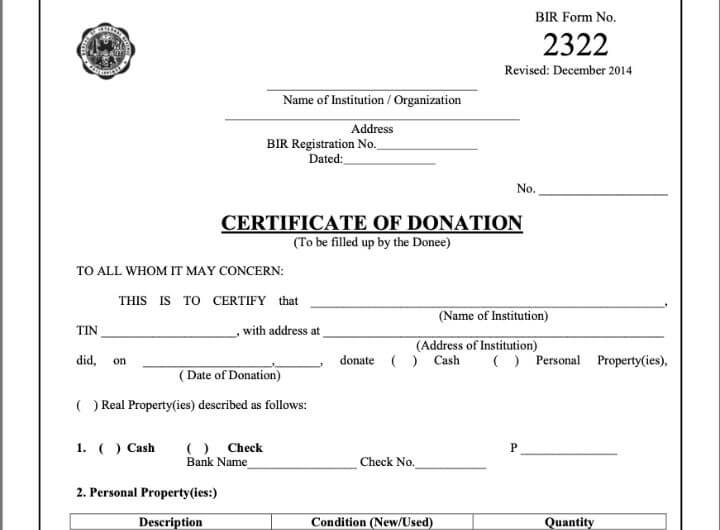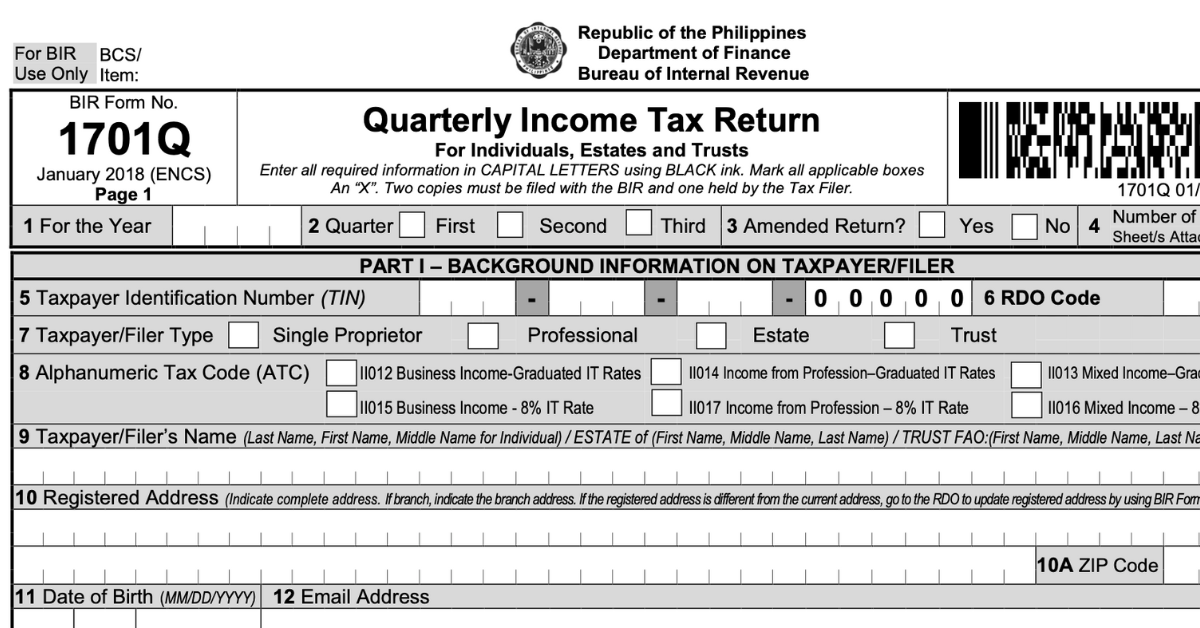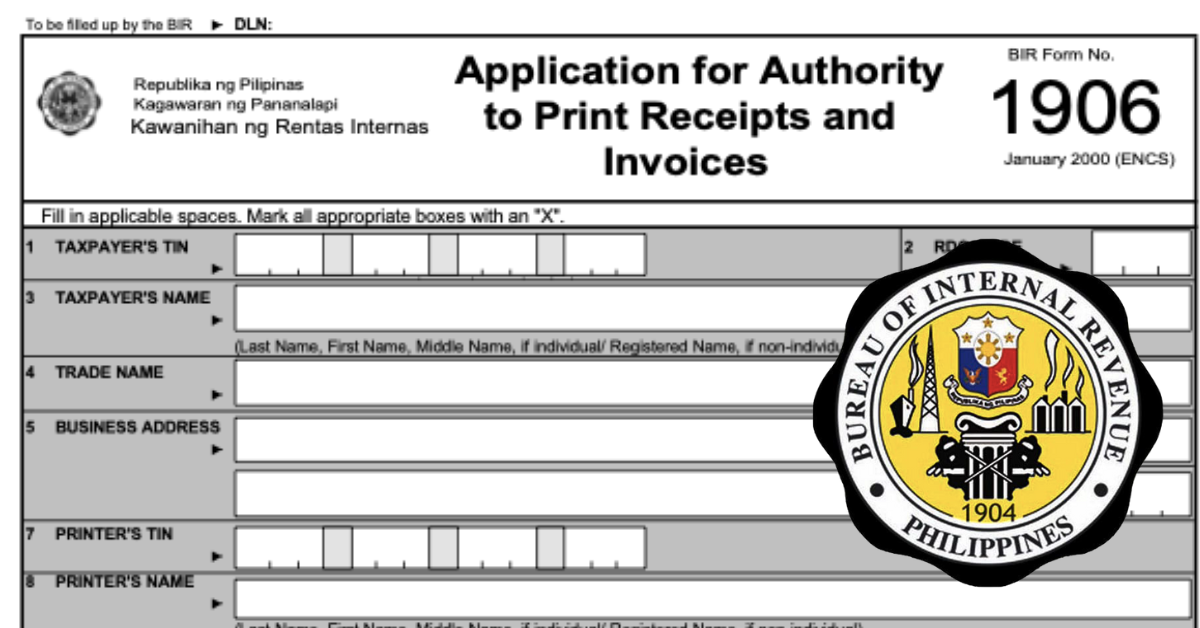Starting a business in the Philippines can be daunting, especially for startups unfamiliar with the ins and outs of business registration. One crucial step in this process is filing BIR Form 1901, which is required for individuals starting a sole or single proprietorship business.
In this comprehensive guide, we will simplify the complex world of business registration for Filipino startups and provide you with everything you need to know about BIR Form 1901. From understanding the form’s purpose to step-by-step instructions on how to fill it out correctly, we’ve got you covered.
Whether you’re a first-time entrepreneur or an experienced business owner, this guide will provide you with the knowledge and resources to navigate the business registration process seamlessly. We’ll break down the jargon, answer your burning questions, and ensure you understand BIR Form 1901 and its significance to your business.
Don’t let the bureaucracy of business registration hold you back from realizing your entrepreneurial dreams. Let’s simplify the process together and keep your business running smoothly.
Understanding the Importance Of Business Registration
Starting a business in the Philippines can be daunting, especially for startups unfamiliar with the ins and outs of business registration. One crucial step in this process is filing BIR Form 1901, which is required for individuals starting a sole or single proprietorship business.
In this comprehensive guide, we will simplify the complex world of business registration for Filipino startups and provide you with everything you need to know about BIR Form 1901. From understanding the form’s purpose to step-by-step instructions on how to fill it out correctly, we’ve got you covered.
Whether you’re a first-time entrepreneur or an experienced business owner, this guide will provide you with the knowledge and resources to navigate the business registration process seamlessly. We’ll break down the jargon, answer your burning questions, and ensure you understand BIR Form 1901 and its significance to your business.
Don’t let the bureaucracy of business registration hold you back from realizing your entrepreneurial dreams. Let’s simplify the process together and keep your business running smoothly.
Who needs to file BIR Form 1901?
Business registration is a crucial step in establishing your startup in the Philippines. It gives your business a legal identity and provides various benefits and protections. Registering your business gives you access to government services, enters into contracts, and protects your brand and intellectual property. Additionally, registered businesses are more likely to gain potential customers’ and investors’ trust and confidence.
Related: How to Get TIN Number Online and Verification Process
A Step-By-Step Guide To Filling Out BIR Form 1901
BIR Form 1901 is required for individuals starting a sole or single proprietorship business in the Philippines. If you are the sole owner of your business and will be conducting business under your name, then this form is for you. However, different forms will be required if you plan to establish a partnership or corporation. Determining the appropriate form for your business structure is essential to ensure a smooth registration process.
Filling out BIR Form 1901 may seem intimidating, but it can be straightforward with the right guidance. Here is a step-by-step guide to help you navigate the form:
1. Personal Information: Provide your complete name, address, and other personal details as required. Make sure to double-check the accuracy of the information to avoid any delays or complications.
2. Taxpayer Type: Indicate your taxpayer type based on the options provided. This will depend on your business structure and the nature of your business activities.
3. Business Activity: Specify the nature of your business activities. This will help the Bureau of Internal Revenue (BIR) classify your business correctly and determine the appropriate tax regulations that apply to you.
4. Employment Information: If you have or plan to hire employees, provide the necessary details, such as the number of employees and their respective positions.
5. Tax Type: Select the appropriate tax type for your business. This will determine the tax obligations and requirements you need to fulfill.
6. Attachments: Attach the necessary supporting documents, such as proof of identification and address. Ensure that these documents are valid and up to date.
7. Review and Submission: Before submitting your form, carefully review all the information you have provided. Make any necessary corrections or revisions to avoid any inaccuracies or discrepancies.
Related: 1906 BIR Form: Application for Authority to Print Receipts and Invoices
Common Mistakes To Avoid When Filing BIR Form 1901
When filling out BIR Form 1901, it’s essential to be aware of common mistakes that can lead to delays or complications in the registration process. Here are some errors to avoid:
1. Inaccurate Information: Double-check all the information you provide on the form to ensure accuracy. Mistakes in personal details, business activities, or tax types can result in delays or rejections.
2. Missing Attachments: Include all the required supporting documents and attachments. Missing or incomplete attachments can lead to rejection of your application.
3. Incorrect Tax Type Selection: Selecting the wrong tax type can result in incorrect tax calculations and obligations. Consult with a tax professional if you’re unsure about the appropriate tax type for your business.
4. Failure to Review: Take the time to review your completed form before submission. Minor errors or inconsistencies can have significant consequences, so checking all the details thoroughly is crucial.
Related: BIR Extends Deadline for Online Business Registration
Tips For A Smooth Business Registration Process
Navigating the business registration process can be overwhelming, but with these tips, you can ensure a smoother experience:
1. Research and Preparation
Familiarize yourself with the requirements and procedures for business registration in the Philippines. Gather all the necessary documents and information in advance to avoid delays.
2. Seek Professional Assistance
Consider working with a professional, such as a lawyer or accountant, specializing in business registration. They can provide valuable guidance and ensure compliance with all legal and tax requirements.
3. Follow Instructions Carefully
Read and understand the BIR’s instructions. Follow the guidelines and requirements precisely to avoid mistakes that could lead to rejection or delays.
4. Stay Organized
Keep all your documents, forms, and receipts well-organized. This will make it easier to track your progress and provide any necessary documentation when required.
5. Be Patient
The business registration process can take time, so patience is essential. Stay proactive and follow up on the progress of your application if necessary, but also allow for the necessary processing time.
Frequently Asked Questions About BIR Form 1901
1. Can I register my business online?
Yes, the BIR now offers online registration services for certain businesses. However, not all businesses are eligible for online registration, so checking the BIR’s official website for the most up-to-date information is essential.
2. How long does the registration process take?
The registration process can vary depending on various factors, including the type of business and the completeness of your application. On average, it can take a few weeks to a few months to complete the registration process.
3. Can I apply for BIR Form 1901 if I already have employees?
Yes, you can still apply for BIR Form 1901 even if you already have employees. The form lets you provide the necessary details about your current and future employees.
Requirements For Business Registration
In addition to BIR Form 1901, there are other requirements and documents you may need to submit during the business registration process. These may include:
- Proof of identification (e.g., valid IDs, passport)
- Proof of address (e.g., utility bills, lease agreement)
- Barangay clearance
- DTI or SEC registration documents (for sole proprietorship or corporation)
- Mayor’s permit or business permit
Benefits Of Registering Your Business With the BIR
Registering your startup with the BIR offers several benefits that can contribute to the growth and success of your business:
1. Legal Identity: Registration gives your business a legal identity, allowing you to operate and transact.
2. Access to Government Services: Registered businesses can access various government services and resources, such as business assistance programs and financial support.
3. Protection of Brand and Intellectual Property: Registration helps protect your brand name and intellectual property rights, preventing others from using or infringing upon them.
4. Building Trust and Credibility: Registering your business demonstrates professionalism and credibility, which can attract customers, clients, and investors.
5. Compliance with Tax Obligations: Registering with the BIR ensures that you comply with tax regulations, avoiding penalties and legal issues in the future.
Recommended: BIR Form 1902 Purpose- The Ultimate Guide

















Leave a Reply